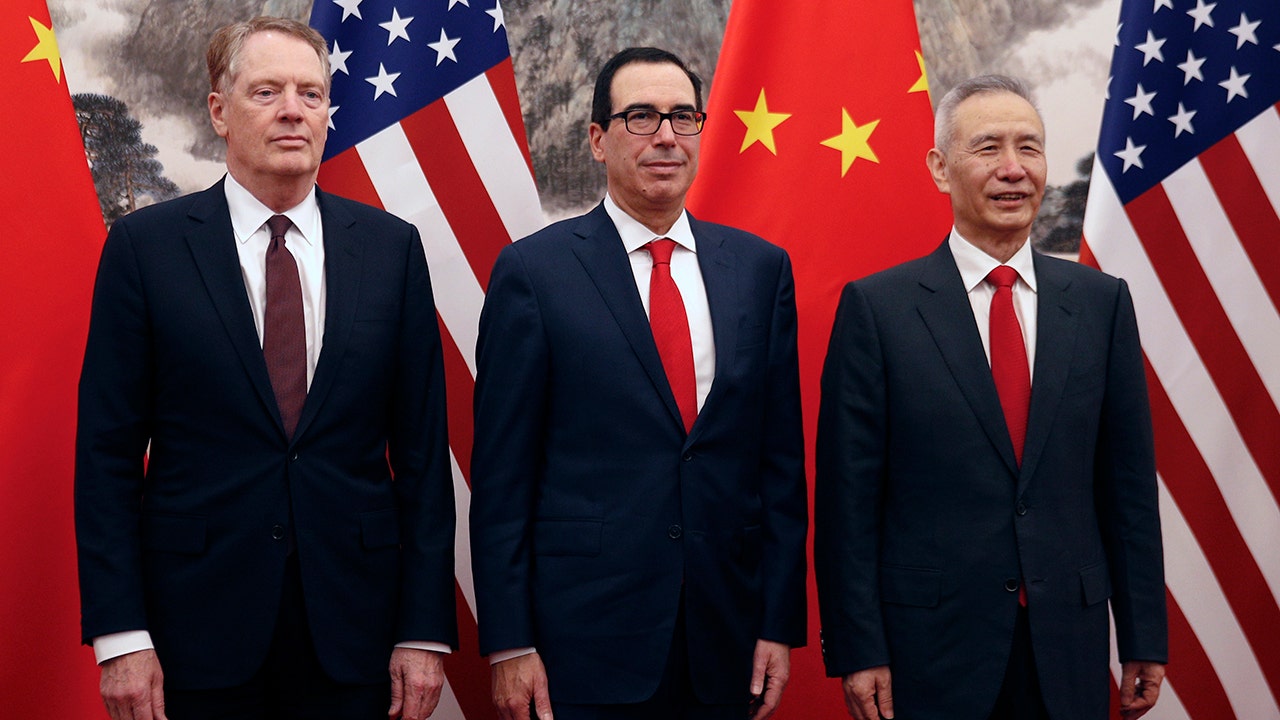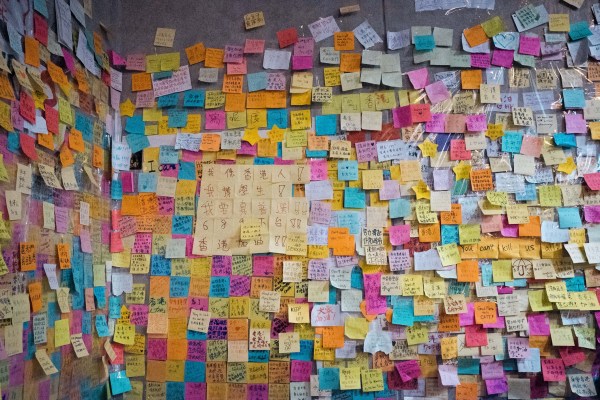BEIJING (Reuters) - A Chinese state newspaper said on Friday that a “partial” trade deal would benefit China and the United States, and Washington should take the offer on the table, reflecting Beijing’s aim of cooling the row before more U.S. tariffs kick in.
Both sides have slapped duties on hundreds of billions of dollars of goods during the 15-month trade dispute, which has shaken financial markets and uprooted global supply chains as companies move production elsewhere.
As top U.S. and Chinese negotiators wrapped up a first day of trade talks in more than two months on Thursday, business groups expressed optimism the two sides might be able to ease the conflict and delay a U.S. tariff hike scheduled for next week.
China’s top trade negotiator, Vice Premier Liu He, said on Thursday that China is willing to reach agreement with the United States on matters that both sides care about so as to prevent friction from leading to any further escalation.
He stressed that “the Chinese side came with great sincerity”.
Adding to that, the official China Daily newspaper said in an editorial in English: “A partial deal is a more feasible objective”.
“Not only would it be of tangible benefit by breaking the impasse, but it would also create badly needed breathing space for both sides to reflect on the bigger picture,” the paper said.
Hours ahead of an expected meeting between China’s Liu and U.S. President Donald Trump at the White House, China’s securities regulator unveiled a firm timetable for scrapping foreign ownership limits in futures, securities and mutual fund companies for the first time.
China previously said it would further open up its financial sector on its own terms and at its own pace, but the timing of Friday’s announcement suggests Beijing is keen to show progress in its plan to increase foreigners’ access to the sector, which is among a host of demands from Washington in the trade talks.
Chinese officials are offering to increase annual purchases of U.S. agricultural products as the two countries seek to resolve their trade dispute, the Financial Times reported on Wednesday, citing unidentified sources.
The U.S. Department of Agriculture (USDA) on Thursday confirmed net sales of 142,172 tonnes of U.S. pork to China in the week ended Oct. 3, the largest weekly sale to the world’s top pork market on record.
A U.S.-China currency agreement is also being floated as a symbol of progress in talks between the world’s two largest economies, although that would largely repeat past pledges by China, currency experts say, and will not change the dollar-yuan relationship that has been a thorn in the side of Trump.
PESSIMISM ‘STILL JUSTIFIED’
Analysts have noted China sent a larger-than-normal delegation of senior Chinese officials to Washington, with commerce minister Zhong Shan and deputy ministers on agriculture and technology also present.
The sudden optimism about a potential de-escalation is in stark contrast to much more gloomy predictions in business circles just days ago on the heels of a series of threatened crackdowns on China by the Trump administration.
On Tuesday, the U.S. government widened its trade blacklist to include Chinese public security bureaus and some of China’s top artificial intelligence startups, punishing Beijing for its treatment of Muslim minorities.
Surprised by the move, Chinese government officials told Reuters on the eve of talks that they had lowered expectations for significant progress.
Friday’s China Daily editorial also warned that “pessimism is still justified”, noting that the talks would finish just three days before Washington is due to raise tariffs on $250 billion worth of Chinese imports.
The negotiations were the “only window” to end deteriorating relations, it added.
Trump, said on Thursday that the talks had so far gone very well. But he has previously insisted he would not be satisfied with a partial deal to resolve his two-year effort to change China’s trade, intellectual property and industrial policy practices, which he argues cost millions of U.S. jobs.
There have also been reports that the Trump administration is readying additional measures aimed at China, with unknown consequences for trade negotiations.
Such wildly shifting expectations have been a persistent feature of the trade war, and observers remained cautious over what might emerge from this week’s talks.
“China wants peace, but I don’t think China will give more,” one Chinese trade expert said on condition of anonymity.
Reporting by Yawen Chen and Michael Martina; Editing by Simon Cameron-Moore & Kim Coghill
https://www.reuters.com/article/us-usa-trade-china/with-us-tariffs-looming-china-drums-up-hope-for-a-partial-trade-deal-idUSKBN1WQ10X
2019-10-11 08:50:00Z
CBMihQFodHRwczovL3d3dy5yZXV0ZXJzLmNvbS9hcnRpY2xlL3VzLXVzYS10cmFkZS1jaGluYS93aXRoLXVzLXRhcmlmZnMtbG9vbWluZy1jaGluYS1kcnVtcy11cC1ob3BlLWZvci1hLXBhcnRpYWwtdHJhZGUtZGVhbC1pZFVTS0JOMVdRMTBY0gE0aHR0cHM6Ly9tb2JpbGUucmV1dGVycy5jb20vYXJ0aWNsZS9hbXAvaWRVU0tCTjFXUTEwWA





